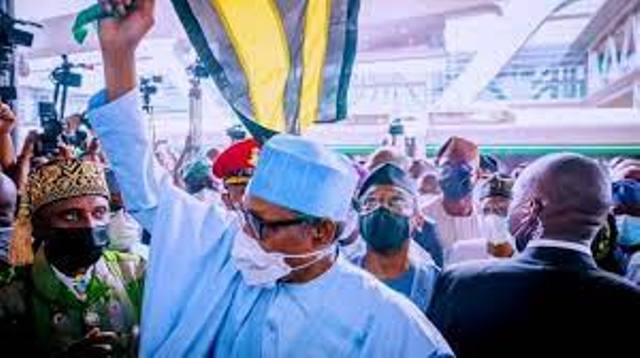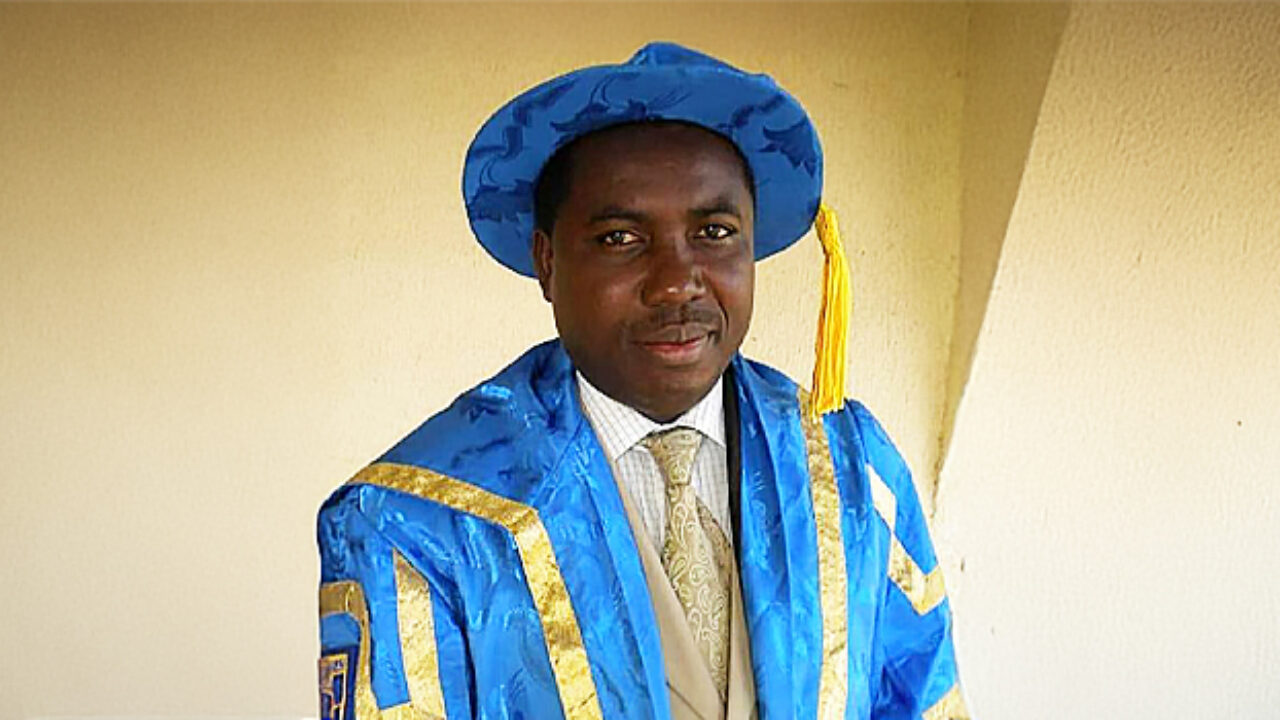President Muhammadu Buhari on Thursday commissioned the $1.5 billion 157-kilometre Lagos-Ibadan standard gauge railway project for full commercial operations.
Speaking at the commissioning in Lagos, the president said the project “is another milestone in the revitalisation of railway projects to enhance economic activities in Nigeria.”
He explained that the project was part of the Lagos-Kano railway project, which already includes an Abuja-Kaduna segment.
“The Lagos-Kano railway project, when completed, will link the Kano-Maradi line at Kano and a rail link from the Nigeria southern ports of Lagos to Maradi in Niger Republic.,” he said.
The president further said his administration was bent on making rail a choice mode of transportation for both passengers and freight and position it as a transportation backbone that can transform industrial and economic activity in the country.
“This vital line establishes an end-to-end logistic supply chain in railway transport within its short corridor, Lagos-Ibadan, as goods to the hinterland would now be transported by rail directly from the Apapa port Quayside straight to the Inland Container Depot located in Ibadan from where it can be distributed to other parts of the country,” he said.
He added that in clear recognition of the challenges posed to the country’s economic growth by the absence of strong and effective infrastructure, “we have in the rail sector, further to other ongoing railway infrastructure projects, embarked on the completion of the outstanding segment of the Lagos-Kano railway, which is Ibadan-Kano”.
The president noted that the connection through rail would position Nigerian ports as the choice for import and export business of the people of landlocked Niger Republic.
He added that it would be beneficial to the economy through employment from new business opportunities and wealth creation.
He further stated that the federal ministry of transportation and ministry of finance had been directed to vigorously act on engagement and reaching financial agreements with appropriate co-financiers to partner with the federal government on the development of the Ibadan-Kano railway and the connection to the Tin Can Island Port as well as the West – East coastal rail line from Lagos to Calabar linking Onitsha, Benin, Warri, Yenagoa, Port Harcourt, Aba and Uyo.
“This is already yielding the desired result as construction activities on the railway segment, Kaduna-Kano has commenced with back-end engineering activities.
In his remarks, the minister of transportation, Mr. Rotimi Amaechi, said the Lagos-Ibadan rail project was the third the president had so far commissioned.
“First it was Abuja-Kaduna, then Warri-Itakpe, and now Lagos-Ibadan. This is one project started and ended by this present administration,” he said.
Also speaking, the governor of Lagos State, Mr. Babajide Sanwo-Olu said the standard gauge rail project is a testament of the federal government’s investment in the state.
“It is indeed a pride to see a project start and end within the life span of an administration. The social and economic importance of this project cannot be over-emphasised.
“The commissioning of this rail line has made it possible for people to work in Lagos and live in Ibadan
“It is indeed a pride to see a project start and end within the life span of an administration,” Sanwo-Olu said.
The Lagos-Ibadan segment of the Nigerian Railway Modernisation Project, with an extension to Lagos Port at Apapa, begins in Lagos and goes north-east through Abeokuta to Ibadan, an industrial hub.
The main line is 156.8 kilometers long, with a 6.51-kilometer extension to Apapa Port.
It connects three of the most important states in the south-west, namely Lagos, Ogun, and Oyo.
With a design speed of 150 km/h, the project follows China Railway Standard.
It is a standard gauge double-track railway with diesel traction and an automatic blocking system.
The project includes 21 big and medium-sized bridges totaling 6.08 kilometers, 12 frames bridges, 256 culverts, 25 overpasses, and ten stations.
The track-laying project covers a total distance of 380.03 kilometers.



















































